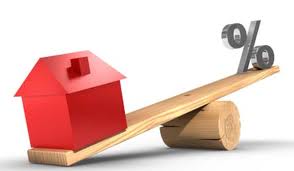In Part 1 of this series, you’ve learned that long term home financing could be very expensive in the long run while at the same time it also makes an expensive property look more affordable on a monthly basis.
For many, getting a home loan is the only way to ever achieve their dreams of owning a home.
However, for those who are into real estate investing and know what they are doing, a long term loan could just be another form of leverage that should be taken advantage of.
As pointed out in the previous series, here we’ll touch on the factors to consider when retiring a long term housing loan earlier than its maturity period such that it becomes advantageous on your part as a borrower or investor. Each one of those factors is cited elaborated in the succeeding paragraphs.
Factor #1: Second Property Investment
In one of our conversations, I mentioned to a friend how lucky he was for inheriting a nice home from his parents. It turns out that each one of his siblings (there are four of them) also inherited a property in another place in the same city. He said he was very thankful to his father for all of these. When his father was still younger, he planned about investing exactly four properties and intended to give them to his children. I was really laughing when he said his father made sure these properties are located in the North-, South-, East- and Western parts of the city!
Did you know that Pag-IBIG allows you to have up to two housing loans? Of course, you have to do it one at a time. In other words, you can take on another housing loan provided your previous loan is already paid off completely. And for the second and third housing loan, you still have to undergo the qualification process just like you did when you got your first housing loan.
Is this something you have thought about already?
Ask yourself, “Am I willing to pay off this loan to get another property?”
Factor #2: Liquidity
 Do you know someone whose hobby involves collecting some stuff? You know…old coins, postage stamps, vintage cars, and others.
Do you know someone whose hobby involves collecting some stuff? You know…old coins, postage stamps, vintage cars, and others.
I’ve met someone whom a lot of brokers would consider a real estate investor. And his hobby? Collecting vacant real estate properties!
Now if you would want to be in this kind of hobby, I would suggest that you get to know what you are getting into. Always have an exit plan in place, just in case something wrong happens that you can’t take it anymore.
The funny thing about real estate brokers is that they are selling properties which they themselves would not even invest. The common reason they say is that a real estate is a dead investment! (Now you know.)
Is there such a thing as a dead investment?
Let me explain it this way: Suppose you have purchased a property a year ago and then suddenly something happened that puts you in an awkward position to want some money – very, very badly. And then you think, one of the ways to raise that amount of money you needed is to sell a piece of real estate that you own. Finally, here’s the catch: “How can you sell the property at the price that you wanted without incurring a loss?”
In an emergency sale, the seller is usually willing to negotiate down the price in exchange for the much more liquid equivalent: CASH.
A dead investment is really just a fancy word for an investment in illiquid asset, such as real estate. It could also mean an investment that does not generate a passive income to the owner.
Ask yourself, “Do I have enough cash in reserve such that I won’t resort to selling my real estate at a loss when an emergency happens?”
Factor #3: Savings
When you retire a loan earlier, you most likely need to you slash your cash reserve to do that. Now that money in some way of another could be earning an interest. Once you use it to pay off the remaining loan balance, you also kill the chance for it to earn the intended interest.
When paying off your loan early, see to it that the money you use to pay off the remaining balance is earning much lower than the interest rate of your mortgage.
Say you have P 700k loan balance and you have that much cash in reserve. Now, compare the interest it will earn if you invest that money versus the interest rate of the loan. If that money is earning you 15% annually — a good rate, by the way – and your mortgage is currently at 10.5% per annum, you are better off not paying the whole balance yet.
However, if your money is giving you a mere 2.5% per annum, plus some more headaches here and there, it would be wise to use that money to pay off your loan balance.
Ask yourself, “How does the interest rate of my mortgage compare with my interest if I would invest the money I’m planning to pay it off with?”
~~~
“Long Term Mortgage Loan — How To Retire It Early” is written by Carlos Velasco. This is the second part of a two-part series. Read the first part here.
 For some people, that is enough to spin their heads around and decide against ever using a long term loan. One site visitor was thinking along this line and left a comment this way:
For some people, that is enough to spin their heads around and decide against ever using a long term loan. One site visitor was thinking along this line and left a comment this way: